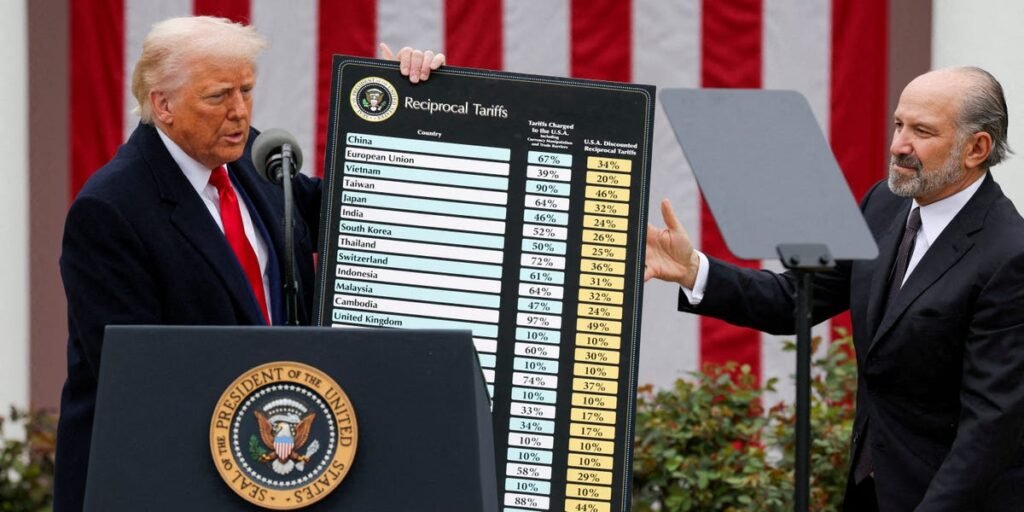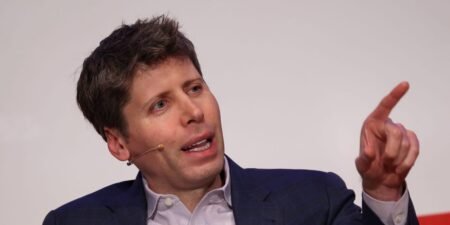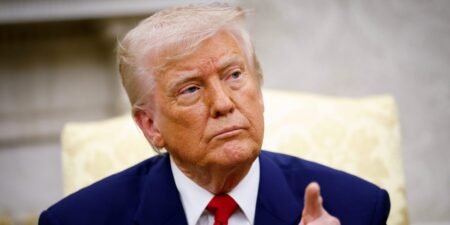President Donald Trump’s tariffs are facing increasing legal pushback — this time from five owner-operated businesses across different states and trades, from fishing gear to wine.
The Liberty Justice Center, on behalf of the small businesses, filed a lawsuit in the US Court of International Trade on Monday challenging Trump’s authority to impose tariffs by invoking the International Emergency Economic Powers Act, arguing that the move violates constitutional limits on executive power.
The lawsuit states that Trump claimed the authority to “unilaterally levy tariffs” on imports, “calculated via any methodology — or mere caprice,” without notice or public comment “despite massive economic impacts that are likely to do severe damage to the global economy.”
“This Court should declare the President’s unprecedented power grab illegal,” the lawsuit added.
The lawsuit involves a wide scope of trades with businesses dealings in 38 countries, including a wine importer in New York, an online fishing gear company, a toy kit maker, a plumbing manufacturer in Utah, and a women’s cycling apparel brand in Vermont.
The libertarian legal group is bringing the lawsuit against Trump, Secretary of Commerce Howard Lutnick, Customs and Border Protection Acting Commissioner Peter R. Flores, and Trade Representative Jamieson Greer.
The move marks the third widely-known legal case aiming to undo Trump’s tariffs, and perhaps the broadest. Members of the Blackfeet Nation have previously sued over Trump’s Canada tariffs, and a small women-owned business in Florida has an ongoing lawsuit against the tariffs on China using similar constitutional arguments.
Trump’s April 2 tariff announcement set a baseline 10% tariff on all imports and imposed steeper tariffs on dozens of countries, some exceeding 30%. Trump, who called the tariffs “reciprocal,” said the amounts were calculated by taking the 2024 US trade deficit in goods with a given country, divided by the total quantity of US imports from that country.
The White House did not respond to requests for comment.
Despite Trump’s decision to pause tariffs on 75 trading partners for 90 days after a bond sell-off and a major stock market downturn, the 10% blanket tariff remains, and a back-and-forth tariff retaliation with China resulted in a 145% tariff against the manufacturing hub.
To justify almost all of his duties, Trump invoked the IEEPA, a 1970s law typically used for economic sanctions during national emergencies in the face of “unusual and extraordinary threat,” which circumvents the approval of Congress. No prior president has used IEEPA to levy tariffs.
“The ‘national emergency’ is that we have a trade deficit in goods —now that’s not an emergency.” Jeffrey Schwab, Senior Counsel at the Liberty Justice Center, told Business Insider. “We’ve had a trade deficit basically for 50 years, so it can’t be an emergency, and it certainly can’t be unusual or extraordinary because it’s common.”
Schwab said that even if the use of the IEEPA ends up being justified, Congress is still not allowed to fully “outsource” its tariff-making power to the president, because that would be unconstitutional under the nondelegation doctrine.
In the coming days, the Liberty Justice Center will seek injunctive relief to temporarily block tariffs while the case awaits a ruling.
“This is exactly what we were concerned about when we fought the Revolutionary War,” Schwab said. “Even if Congress can delegate some authority for the President to issue tariffs, the President’s interpretation of the IEEPA is so broad that it would give him almost unlimited authority to issue tariffs and set rates.”
Read the full article here

















